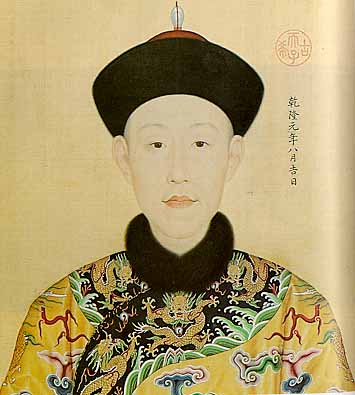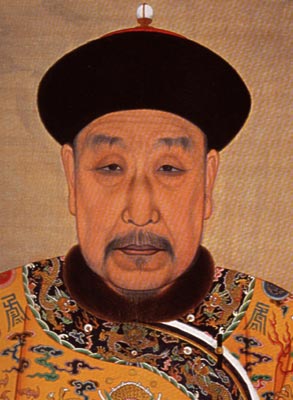| About China > History > Emperors > Famous Emperors |
|
|
Qianlong
Qianlong showed his talent when in his childhood. Because of this, his grandfather Emperor Kangxi liked him a lot. After setting up the rule of choosing successor secretly, Emperor Yongzheng chose Qianlong to succeed the throne without hesitation.
Qianlong was 25 years old when he succeeded the throne. He learnt his grandfather's and his father's ways of running the state affairs. And he skillfully dealt with the relationship between Manchu, Han and other ethnic minorities to consolidated imperial power. His reign was the most prosperous period of Qing Dynasty.
Qianlong promised that he would abdicate after ruling as an emperor for 60 years, because that his grandfather Emperor Kangxi's reign lasted for 61 years, and Qianlong did not want to exceed his grandfather. In 60th year of his reign, he carried out his promise, and his son Yuyan (Emperor Jiaqing) became the new emperor. Actually, Qianlong was still running the country. A lot of important affairs was reported to and solved by him.
Qianlong took great pride in his administrative style which ushered in a period of great prosperity in the country. Emperor Qianlong's reign marked the peak of feudalism in China and, together with the reign of Emperor Kangxi, this period is known as Kang Qian Sheng Shi (the Great Prosperity of Emperor Kangxi and Qianlong). Unfortunately, however, in his old age he appointed corrupt officials such as Huo Shen, and problems of extortion and poor administration contributed directly to the decline of the Qing Dynasty. |
||||||
 |

